★★★½
“Rise of the Robots”
 A little way in the future, a cold war between China and the West is beginning to heat up. In an underground base, Vincent McCarthy (Stephens) is doing research into cybernetic implants that can help injured soldiers lead productive lives. He’s also working on a fully self-aware android. His boss, Thompson (Lawson) likes this because of the potential military uses; McCarthy is actually doing it as a potential way of helping his mentally-disabled daughter. He gets a new assistant, Ava (Lotz), whose radical politics are viewed with suspicion by Thompson, yet there’s no denying her knowledge, and McCarthy also uses Ava as the template for his android’s persona. When she is killed by a Chinese agent, McCarthy activates the android, called “Machine”. and Thompson sees his chance to shape into a prototype for a new generation of artificial soldiers., super-strong, lightning fast and unburdened by that pesky morality thing. He blackmails McCarthy into removing Machine’s conscience, only to find she has entered into an electronic alliance with the soldiers that received implants, who are now working as guards on the base.
A little way in the future, a cold war between China and the West is beginning to heat up. In an underground base, Vincent McCarthy (Stephens) is doing research into cybernetic implants that can help injured soldiers lead productive lives. He’s also working on a fully self-aware android. His boss, Thompson (Lawson) likes this because of the potential military uses; McCarthy is actually doing it as a potential way of helping his mentally-disabled daughter. He gets a new assistant, Ava (Lotz), whose radical politics are viewed with suspicion by Thompson, yet there’s no denying her knowledge, and McCarthy also uses Ava as the template for his android’s persona. When she is killed by a Chinese agent, McCarthy activates the android, called “Machine”. and Thompson sees his chance to shape into a prototype for a new generation of artificial soldiers., super-strong, lightning fast and unburdened by that pesky morality thing. He blackmails McCarthy into removing Machine’s conscience, only to find she has entered into an electronic alliance with the soldiers that received implants, who are now working as guards on the base.
The start of this rang bells. I think I made an effort to watch this before, and gave up for some reason, likely related to it taking a while to get anywhere beyond its obvious low-budget limitations, i.e. early on, it forgets the need to show, don’t tell and is frankly, too chatty. However, once Ava turns into Machine, it becomes a good deal more interesting. It remains somewhat derivative in certain aspects, though it’s hard for any low-budget SF film ever to be entirely original: Species and Blade Runner would appear the most obvious inspirations, asking what it means to be human, yet taking the form of a very non-human life-form. Chuck in some Frankenstein, a bit of 2001, and it seems to have some Eve of Destruction in there as well, through the “military experiment gone rogue” angle. However, it’s most effective when going its own way, whether in storyline or style: there’s one stunning sequence where Machine isn’t doing much beyond walking, and is literally glowing from within. Beautifully executed, it shows what imagination and ingenuity can do, even on limited resources.
The movie’s other strength is Lotz who, as the picture above shows, genuinely looks like she could kick your ass if she wanted to, a refreshing change from some of the wispier action-heroines I’ve seen recently. [I’m looking at you, The Lady Assassin…] I may have to start watching Arrow, on which she plays Black Canary: her background as a dancer serves her well, and she also projects a wide-eyed innocence which appears appropriate to her “newborn” status. But the latter might be as much for show, since it’s coupled with a steadily escalating awareness that the things Thompson wants her to do, might be morally ambiguous, at the very least. More intelligent than the average genre entry (if perhaps not as smart as it thinks), Caradog and his crew demonstrate a clear talent for making a little go a long way. I look forward to seeing what he does in future – and Lotz is likely also a name on which to keep an eye, as well.
Dir: Caradog W. James
Star: Caity Lotz, Toby Stephens, Denis Lawson, Pooneh Hajimohammadi





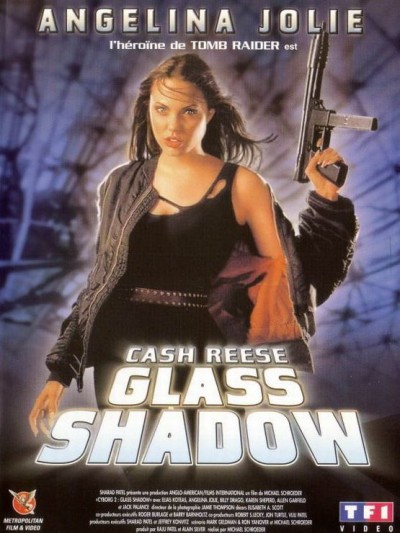


 This makes a great deal more sense when you realize it’s actually a sequel, not only to Cymek’s earlier Dark Rising, but also the TV series that followed. The US/Netflix title and blurb cunningly manage to avoid mentioning this, which certainly explains the sense that you have walked into the middle of a story. For instance, none of the characters are apparently fazed by the fact that interdimensional portals have opened, allowing all manner of icky creatures to enter this Earth’s realm from a “Dark Earth”. It’s up to the Rising Dark Agency, a Government department [apparently staffed by about six people] to keep the resulting mayhem in check. Chief among its operatives are Jason Parks (Cannon, a dead-ringer for Dolph Lundgren) and Summer Vale (Kingsley, also the director’s wife), whose combination of human and demon DNA you have probably noticed on the poster. And are perhaps still staring at.
This makes a great deal more sense when you realize it’s actually a sequel, not only to Cymek’s earlier Dark Rising, but also the TV series that followed. The US/Netflix title and blurb cunningly manage to avoid mentioning this, which certainly explains the sense that you have walked into the middle of a story. For instance, none of the characters are apparently fazed by the fact that interdimensional portals have opened, allowing all manner of icky creatures to enter this Earth’s realm from a “Dark Earth”. It’s up to the Rising Dark Agency, a Government department [apparently staffed by about six people] to keep the resulting mayhem in check. Chief among its operatives are Jason Parks (Cannon, a dead-ringer for Dolph Lundgren) and Summer Vale (Kingsley, also the director’s wife), whose combination of human and demon DNA you have probably noticed on the poster. And are perhaps still staring at.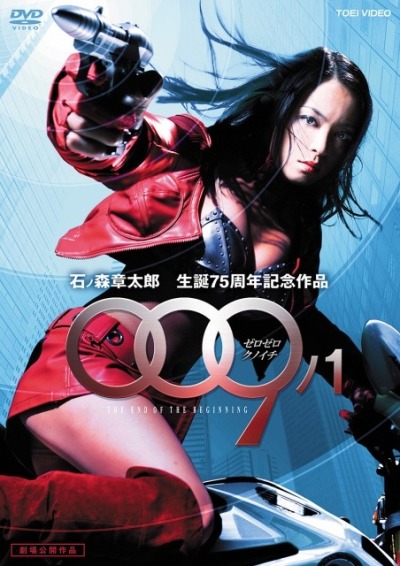 Partly to celebrate the 75th birthday of its late creator, Shotaro Ishinomori, the first live-action feature adaptation of his spy series 009-1 was made – it had previously been made into a TV show, during the late sixties, and a 12-episode anime series in 2006. This version was helmed by Sakamoto, best known for his work on the action in Kamen Rider and Power Rangers, but we’ve been a fan since his involvement in 1997’s Drive, with Mark Dacascos, whose fights still hold up very well today. And this is almost as much fun, combining bone-crunching action with more philosophical insights, into what it means to be human.
Partly to celebrate the 75th birthday of its late creator, Shotaro Ishinomori, the first live-action feature adaptation of his spy series 009-1 was made – it had previously been made into a TV show, during the late sixties, and a 12-episode anime series in 2006. This version was helmed by Sakamoto, best known for his work on the action in Kamen Rider and Power Rangers, but we’ve been a fan since his involvement in 1997’s Drive, with Mark Dacascos, whose fights still hold up very well today. And this is almost as much fun, combining bone-crunching action with more philosophical insights, into what it means to be human. Part one was deemed by the qualification panel as falling short of the necessary minimum level for inclusion here, being a mix of poignant drama about an elderly man whose lifelong companion’s battery is running down, and porn. The sequel, however, just about does enough to qualify, albeit while retaining a hefty dose of the latter aspect – and you don’t need to have seen part one either. Here, disgruntled scientist Professor Uegusa (Horiken) hatches a plan to destroy the appearance-based culture of romance, and to finance this sends out his “hostroids”, attractive male androids, in a variety of guises, e.g. office manager, door-to-door salesman, etc. to seduce woman and bilk them of their savings. He also sends them to kill rival researcher Dr. Kouenji, who had been building a countermeasure, in the form of a maid android, Maria (Yoshizawa). Before his death, Kouenji sends Maria to geeky student Shotarou (Haraguchi), but she isn’t ready, needing her “love circuit” activated before she can attain her full potential needed to defeat Uegusa and the hostroids. Can Shotarou manage that final step before the hostroids take him and Maria down?
Part one was deemed by the qualification panel as falling short of the necessary minimum level for inclusion here, being a mix of poignant drama about an elderly man whose lifelong companion’s battery is running down, and porn. The sequel, however, just about does enough to qualify, albeit while retaining a hefty dose of the latter aspect – and you don’t need to have seen part one either. Here, disgruntled scientist Professor Uegusa (Horiken) hatches a plan to destroy the appearance-based culture of romance, and to finance this sends out his “hostroids”, attractive male androids, in a variety of guises, e.g. office manager, door-to-door salesman, etc. to seduce woman and bilk them of their savings. He also sends them to kill rival researcher Dr. Kouenji, who had been building a countermeasure, in the form of a maid android, Maria (Yoshizawa). Before his death, Kouenji sends Maria to geeky student Shotarou (Haraguchi), but she isn’t ready, needing her “love circuit” activated before she can attain her full potential needed to defeat Uegusa and the hostroids. Can Shotarou manage that final step before the hostroids take him and Maria down? I don’t review movies without subtitles very often. This would be a good reason why. I knew very little about this going in: there’s no IMDB entry, no other reviews appear to exist, and virtually the only Google hits are the range of more or dubious sites from which you can download the movie. Subtitles? Don’t make me laugh. That no-one has done so indicates one of two things: no-one was interested enough to do so, or it’s difficult to subtitle a movie with one hand, if you know what I mean, and I think you do. Either way, it leaves me in a difficult spot: any or all of what follows may be wildly inaccurate. However, the chances of anyone ever correcting me are likely slim, so what the hell…
I don’t review movies without subtitles very often. This would be a good reason why. I knew very little about this going in: there’s no IMDB entry, no other reviews appear to exist, and virtually the only Google hits are the range of more or dubious sites from which you can download the movie. Subtitles? Don’t make me laugh. That no-one has done so indicates one of two things: no-one was interested enough to do so, or it’s difficult to subtitle a movie with one hand, if you know what I mean, and I think you do. Either way, it leaves me in a difficult spot: any or all of what follows may be wildly inaccurate. However, the chances of anyone ever correcting me are likely slim, so what the hell…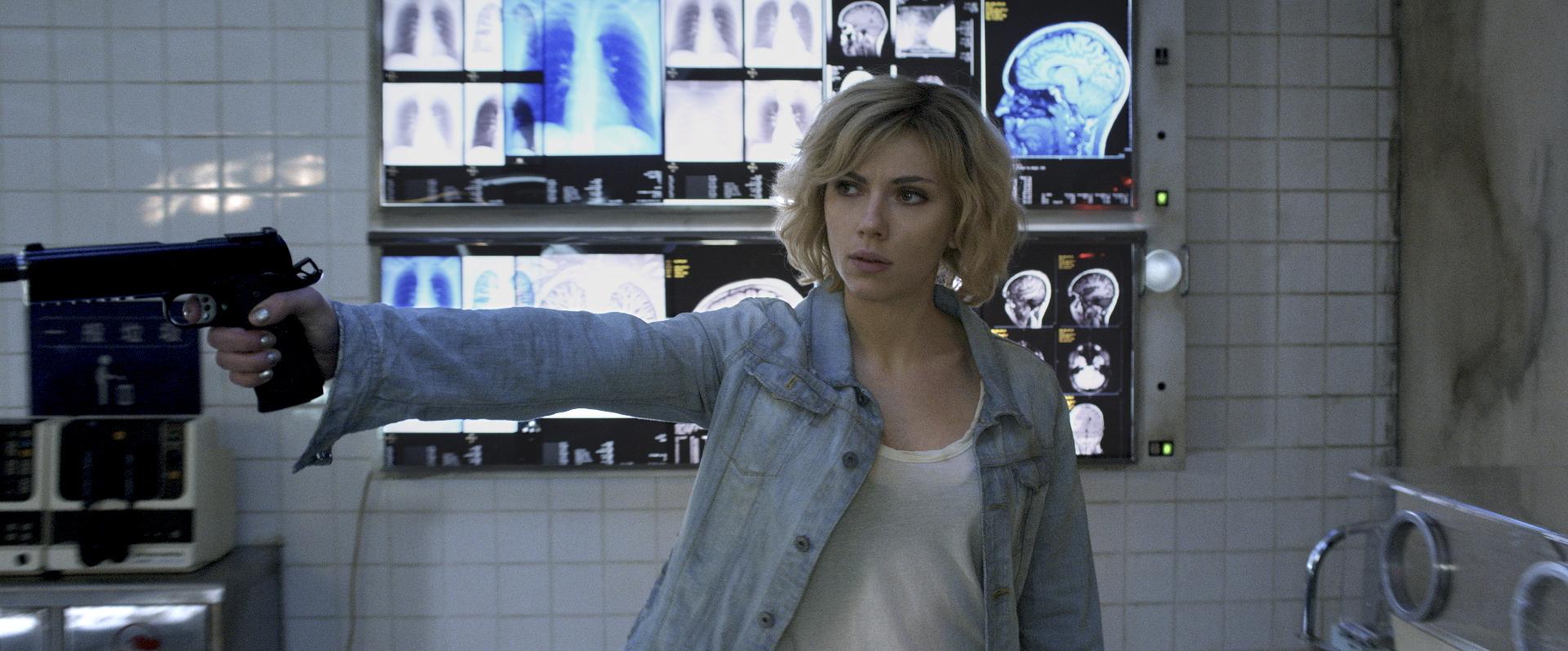


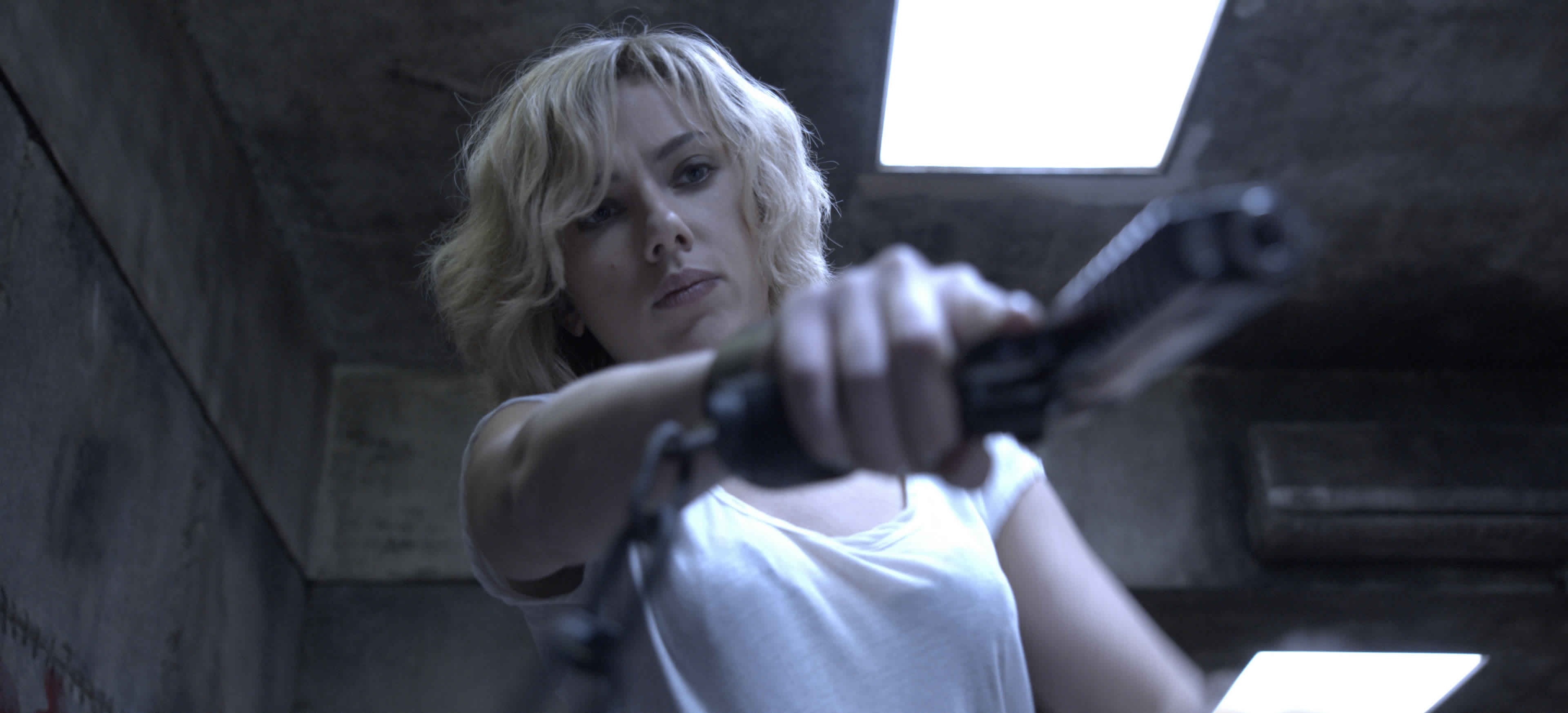
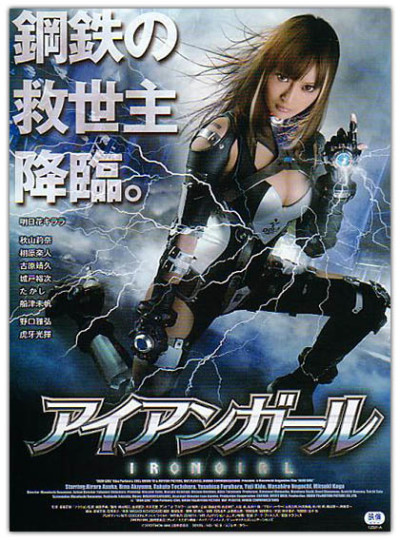 The introduction tries to make it seem as if this could take place at any point in history, but there’s not much effort put into maintaining the illusion. The guns and overall setting – best described as “distressed warehouse” – puts this firmly into the post-apocalypse genre, though it’s very much at the bargain basement end of the spectrum. The heroine (adult actress Asuka) stumbles across naively innocent Anne (Akiyama), being pawed by some bad guys after straying into the danger zone to pick flowers; clearly a kinder, gentler apocalypse. After punching them out, assisted by remarkable reactions and her metal exo-skeleton, Anne is escorted back to her
The introduction tries to make it seem as if this could take place at any point in history, but there’s not much effort put into maintaining the illusion. The guns and overall setting – best described as “distressed warehouse” – puts this firmly into the post-apocalypse genre, though it’s very much at the bargain basement end of the spectrum. The heroine (adult actress Asuka) stumbles across naively innocent Anne (Akiyama), being pawed by some bad guys after straying into the danger zone to pick flowers; clearly a kinder, gentler apocalypse. After punching them out, assisted by remarkable reactions and her metal exo-skeleton, Anne is escorted back to her 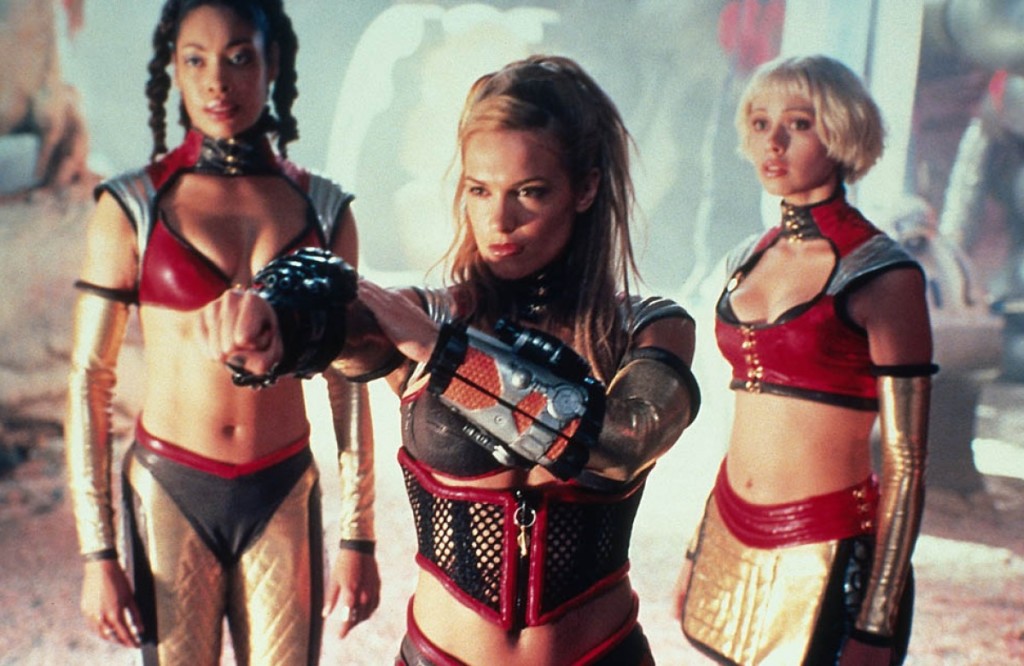 ★★★
★★★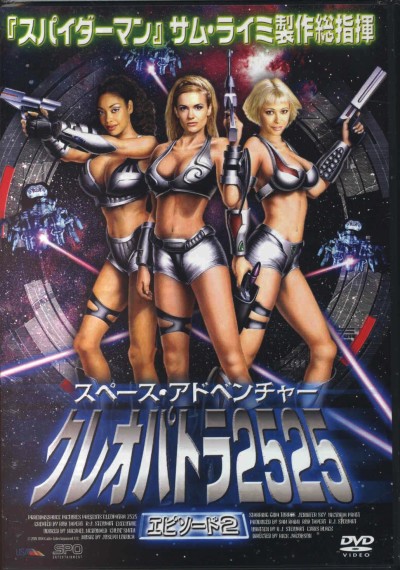 All three, however, were clearly selected as much for their visual appeal, and the 25th century is not short of beautiful people – it’s also quite warm, going by the ah, flimsy clothing worn by the trio. Cleo and her former profession fit right in. But taking any of this seriously would largely be doing the show a disservice, because it’s clear it doesn’t take itself seriously. There isn’t really time for that kind of thing, with each episode barely 20 minutes, excluding opening (theme song sung by Torres, a funked-up and lyrically altered version of Zager and Evans’ one-hit wonder, In the Year 2525) and closing credits. There isn’t much time for anything, in fact: both characterization and plotting remain about as scanty as the outfits. Hel is thoughtful but can be distant; Sarge likes shooting things first and asking questions later; Cleo, to be honest, is mostly irritating, coming over as both whiny and rather vacuous.
All three, however, were clearly selected as much for their visual appeal, and the 25th century is not short of beautiful people – it’s also quite warm, going by the ah, flimsy clothing worn by the trio. Cleo and her former profession fit right in. But taking any of this seriously would largely be doing the show a disservice, because it’s clear it doesn’t take itself seriously. There isn’t really time for that kind of thing, with each episode barely 20 minutes, excluding opening (theme song sung by Torres, a funked-up and lyrically altered version of Zager and Evans’ one-hit wonder, In the Year 2525) and closing credits. There isn’t much time for anything, in fact: both characterization and plotting remain about as scanty as the outfits. Hel is thoughtful but can be distant; Sarge likes shooting things first and asking questions later; Cleo, to be honest, is mostly irritating, coming over as both whiny and rather vacuous.







